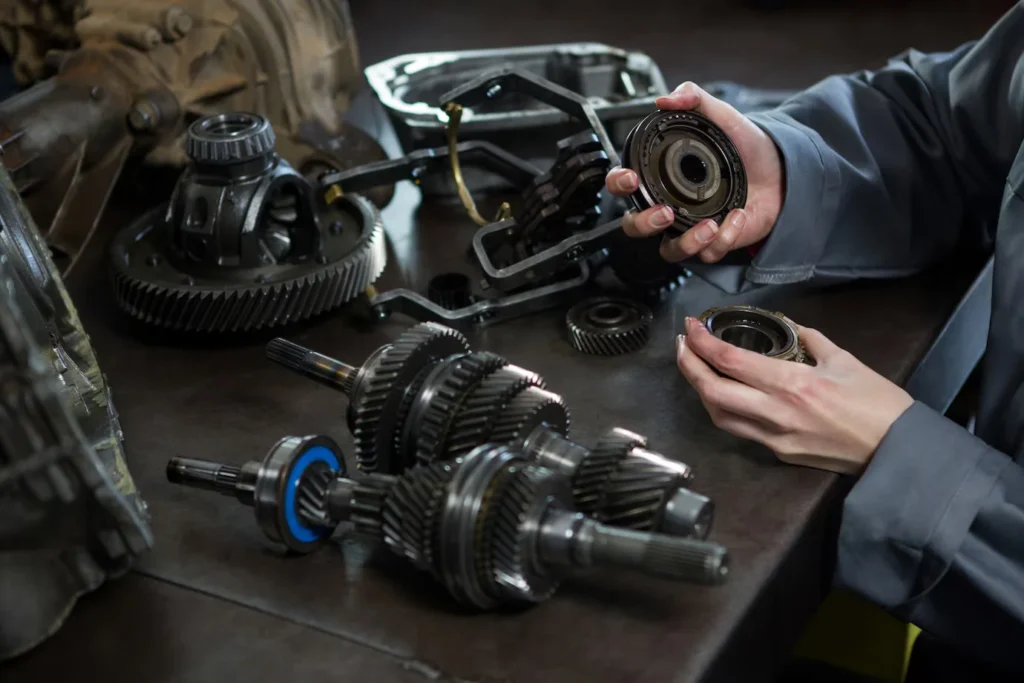The automobile sector keeps evolving and new technologies replace aging ones quickly. One notable trend in the industry is the increasing usage of various powder metallurgy parts. Many companies are using such parts to improve engine performance, fuel economy, and, vehicle stability.
Powder metallurgy is a specialized manufacturing process in which metal powders are made solid under high pressure and heat. It is more advantageous than traditional methods, as far as cost-effectiveness and efficiency are concerned. In the automobile sector, PM is used to develop very intricate parts such as timing chain sprockets. These parts need excellent mechanical properties and tight tolerances.
By using powder metallurgy process-derived parts automotive companies get the advantages like:
- In powder metallurgy, the waste generation is minimized.
- In this process, parts are made with tight tolerances, ideal for intricate timing systems in cars.
- The manufacturers are able to reduce manufacturing costs as well.
How Do Applications of Powder Metallurgy Enhance Timing Chain Sprockets?
In automobile internal combustion engines, a Timing chain sprocket is a critical component. It links the crankshaft with the camshaft, ensuring the exhaust valves and the engine’s intake operates in a precise manner, at the right time. Any snag in the timing chain system may lead to serious engine damage. So, the sprockets have to be rugged, durable, and accurately designed. This is where powder metallurgy ticks the boxes.
- Great durability- Timing chain sprockets made through PM offer excellent strength and wear resistance. The materials deployed, including FC-0205 and MPIF 35, have top-notch mechanical properties. They cope well with heat, friction, and stress typical inside the automotive engine.
- Good tolerance and precision- A car engine works optimally when its camshaft and crankshaft are well synchronized. Timing chain sprockets need ideal hole diameters and tooth profiles to interact properly with other engine components. Through the PM process, sprockets are made with amazing dimensional accuracy (like ±0.01 mm).
- Cost-Effective manufacturing- Traditional sprocket manufacturing may be costly but with PM, manufacturers can develop sprockets in bulk without facing production cost surges.
- Environmental advantages- Nowadays, automobile entities are opting for eco-friendly practices, globally. The waste reduction and less material waste align with their sustainable manufacturing practices.
Powered metallurgy innovations enhancing Timing Chain Sprockets
Recent developments in the sphere of powder metallurgy have enabled manufacturers to improve the quality and performance of timing chain sprockets substantially.
- PM manufacturing entities are resting on the usage of advanced composite materials for better quality and output.
- Using PM in alliance with other advanced manufacturing techniques like 3D printing can be even more advantageous for automotive companies.
- Through the advancements in sintering technology manufacturers can now attain tighter tolerances, making such sprockets exceptionally precise and durable.
Summing it up
The automotive industry is opting for sustainable and efficient practices and PM parts like timing chain sprockets fit their needs well. The advanced manufacturing techniques have improved their durability and performance drastically. However, it is important that automobile entities procure such specialized parts and accessories from reputed and professional PM sector companies. Top-notch players offer customization for advanced PM products, as well.







